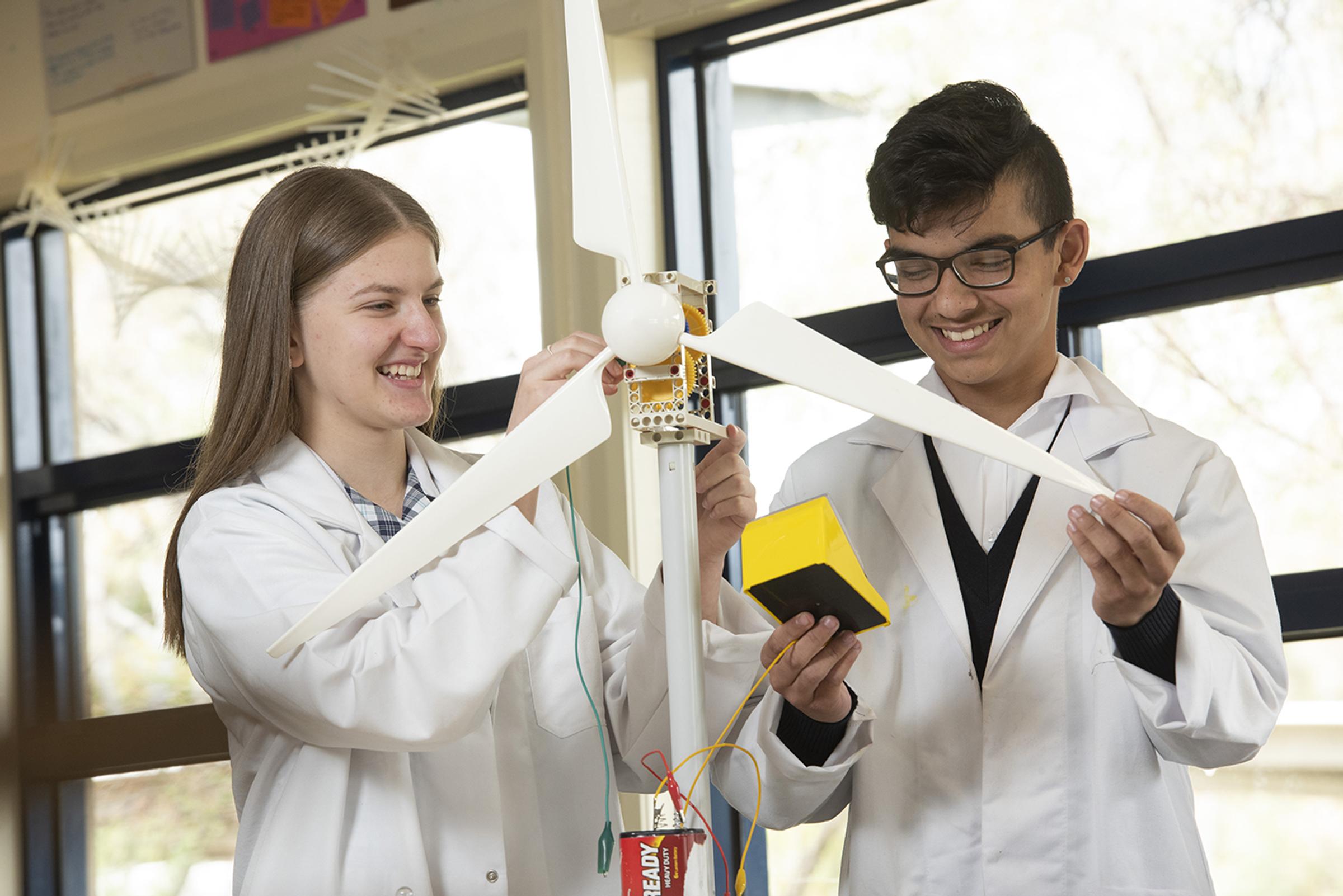Year 9 Program - Semester One

English
In Term 1 students study issues and persuasive language. By exploring the important issues of the day the students further develop their use of descriptive and persuasive language. Students must respond to current affairs with carefully researched evidence to inform their points of view. Students use their written and spoken skills to present their ideas in a way that persuades an audience effectively. Learning how to manipulate language and people’s hearts and minds, or spot it when others are trying to do it to them, will serve the students well for the rest of their lives.
In Term 2 students study the free verse novel, ‘The Simple Gift’, a story about the struggles of homelessness. This unit will be integrated with the students’ Inquiry focus on social issues. They will research real life case studies and apply their new-found knowledge to their assessment tasks. While continuing to improve grammar, vocabulary, clear thinking and expression, the students will respond to the text through creative writing, comprehension and analytical tasks.
Mathematics
In Year 9 Mathematics, students will be using an online learning environment to support their individualised development. This online learning environment is called Maths Pathways. Maths lessons will be tailored precisely to what each individual student is ready to learn. Students will be filling in gaps in prior learning or working on extension activities. As part of the curriculum, students will be involved in a learning cycle which lasts for a fortnight. In each learning cycle, students work on their own program along with engaging in Rich Tasks, which have a focus on problem solving and real world applications. Rich Tasks will either be individual tasks or activities that require students to work in small groups. They will focus on building a growth mindset towards their maths learning. Towards the end of each term, students will also participate in a Rich Project Task.
Inquiry
STEM skills (science, technology, engineering and maths) are increasingly important multidisciplinary skills required in industry and innovation. Art and artists have long been innovators of their times. The steAm Inquiry offers students the opportunity to explore the intrinsic link between science, maths and art. Students will explore the mathematics of perspective, impossible shapes and tessellations of artists such as those of M.C. Escher. They will explore the science of pixel art beginning with the pointillists of the 1880s and moving through to contemporary digital art styles. This unit will provide students with a chance to explore scientific and mathematical theories and use those theories to create their own art in response.
Humanities
During Term One in History, students refer to significant events during The Industrial Revolution and the actions of individuals and groups during this time. They examine the beliefs and values of people during this time to identify and evaluate the patterns of change and continuity. They analyse the causes and effects of events and developments during the Industrial Revolution and explain their significance. They evaluate the different interpretations of the past and recognise the evidence used to support these interpretations. Students construct and communicate an argument about the past using a range of reliable sources of evidence. In developing these texts and organising and presenting their arguments, they use historical terms and concepts, evidence identified in sources, and they use consistent referencing of these sources.
In Term Two Geography, students focus on global human wellbeing. Students will investigate the impact of the development of places and human wellbeing. They will map and measure the topic and development on a regional scale and compare it to that of a developing country from Asia, Africa, South America or the Pacific Islands. They will then investigate the role of initiatives by international and national government and non-government organisations to improve human wellbeing in Australia and other countries.
Science
Students will look at energy transfer through different mediums reinforcing their understanding of the wave and particle models. Students will also undertake a range of experiments and investigations to explore one of the four fundamental forces: Electromagnetism. Students will create and describe their simple electrical circuits. They will examine the difference between series and parallel circuits, the interaction between magnets and electricity and the use of a variety of sensors involved in robotics. Students examine, in greater detail, the structure of matter including at a subatomic level. They learn how atomic theory helps to inform the structure of the periodic table and changes occurring during chemical reactions. They conduct investigations in order to study the production of new substances and learn how to balance chemical equations. Students will also explore radioactivity and examine the structure of the nucleus to answer questions around radioactive atoms, carbon dating, radiotherapy and a discussion which poses their stance on the use of radioactive energy in Australia.
Health & Personal Learning
Students participate in each of the following units through a rotation process over the course of a semester:
'Able Body, Able Mind' investigates the differing abilities of individuals in regards to their mental health and physical bodies. Students investigate the signs, symptoms, causes and treatment of many common health ailments. They critically evaluate the implications of these ailments from an individual, community and society perspective. Students study a range of community support services and analyse the stigma and negative community attitudes that are often associated with certain health conditions and examine influences that impact healthy behaviours.
'Teen Smart' students look at social and cultural factors that influence the development of their personal identity and values. They discuss the nature of independence in terms of adolescent development through drug and sex education. Students undertake the SAPPSS (Sexual Assault Prevention Program for Secondary Schools) where they focus on respectful relationships and harm-minimisation strategies that they can use to ensure their own and others' safety. Throughout the unit, students are challenged to consider scenarios, and then respond to these in healthy and informed ways.
